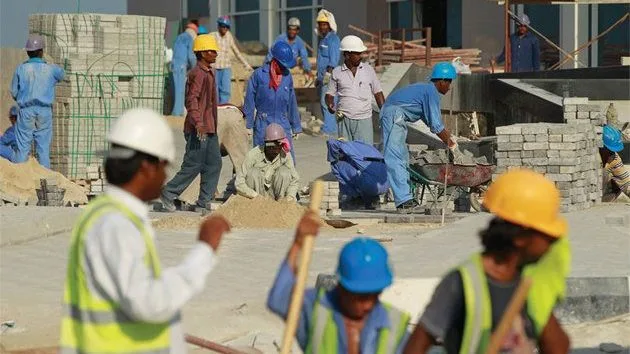Qatar arrests and deports unpaid migrant workers

On August 14 around 60 workers protested in front of the Doha offices of Al Bandary International Group. They had not received their salaries for several months despite the conglomerate being worth some several million dollars.
The Qatari government's response? Detention and, for some, deportation.
“Have we all been duped by Qatar over the last several years?”
Head of the labor consultancy group Equidem which is investigating the incident, Mustafa Qadri, wants to know if recent labor reforms have been a cover for the government in light of the fast approaching 2022 World Cup.
Migrants make up over 90% of the workforce in Qatar but unfortunately have historically been unprotected against labor and other human rights abuses.
In 2020, the government established legislative reforms that effectively abolish Qatar's kafala or sponsorship system, allowing for employees to theoretically move freely from their initial employer if they so choose. The move was monumental for a region in which kafala is widely practiced. However, in practice, numerous persons have reported being unable to leave their jobs, being threatened by employers and not being able to access support from the Ministry of Labor.
Who is the government really protecting?
In this particular case, the government admits it is aware of the company's malpractice and told the Associated Press it would repay “all delayed salaries and benefits.” But what about sanctions for the company in question? “Further action is being taken” is the claim.
The government says reform is a slow process but then has no qualms about arresting migrant workers for publicly protesting the breaking of local labor laws while paying off companies' debts. This begs the question: are these reforms genuine?
Labor activists are not convinced.
There is no World Cup without migrant workers
It seems the government is more likely bowing to public scrutiny caused by the World Cup. So we should continue to agitate for better working conditions while they are sensitive to backlash.
Given that the World Cup stadiums and infrastructure would not exist without migrant workers, it is unthinkable that the government cannot enact real labor reform. The time is running out for Qatar to do better by migrant workers.
No one deserves to be jailed for holding companies accountable to local laws.
Join Freedom United and over 90,000 supporters who have signed our petition calling on the Qatari Minister of Labor to end the forced labor of migrant workers.
